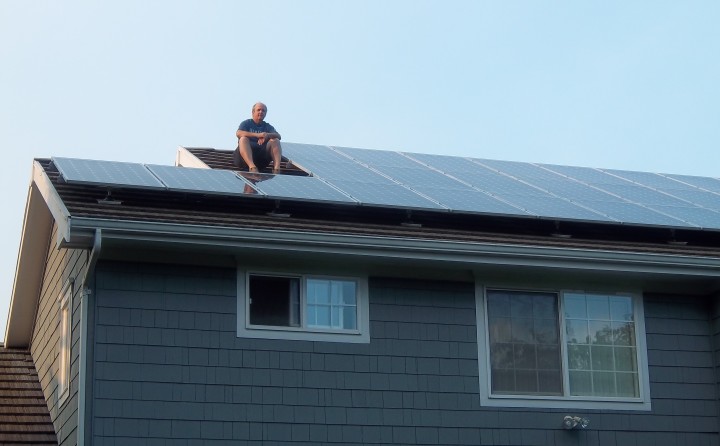Our state’s Net Metering law was originally passed in 1998. All utilities in Washington State are required to allow their customers to install solar photovoltaic (or PV for short) renewable energy systems and provide “net metering” to their customers. Net metering allows you to use the solar electricity your system is generating and to sell any surplus to the electrical utility at the same retail rate they charge you for their electricity. Net metering regulations have dramatically improved the average person’s ability to create and use their own solar power. Here in the northwest our peak energy usage is typically during the wintertime when the days are shortest, while our peak sunny days and highest solar production occur in the summertime. With net metering, it doesn’t matter. Net metering allows us to earn credits on our monthly utility bills in the summertime with our grid tied solar PV system and use those credits in the fall and winter as the days get shorter and our energy needs start rising again. During the winter when your solar PV array isn’t producing as much power as your home or business requires, the grid provides steady, reliable power.
In this way, we are using the grid as a “virtual battery.” This virtual battery has many advantages over having an actual physical chemical battery in your home.
- It is infinitely sized, at least practically infinite relative to our 5-25 KW residential grid-tied pv system. Our solar electricity will never “fill” the grid, unlike an actual off-grid battery bank which may be at full charge early on a summer morning, not giving us anywhere to store our summer day’s energy unless we make certain to use the energy at the same rate at which it is being produced.
- It is 100% efficient. Energy stored in the form of a kwh (kilowatt-hour) credit on your meter is later used, and because there is no conversion from electrical to chemical energy and back, there is no loss due to inefficiency, which may be as low as 75% in some battery systems.
- We can seasonally store energy. There is no loss of energy over time when it is stored as a credit on your meter. So you can use summertime energy in the wintertime when you need it and your array is not producing as much power.
- You already pay a small monthly fee for the use of the grid. The grid construction and maintenance is a socialized cost shared by all utility customers, you will see you monthly service charge on your existing bill. This flat fee ranges from about $12 per month in progressive utilites, up to nearly $30 per month in utilities that keep kwh rates low by using high flat fees.
While in some states, there have been political battles over net metering, but there is no conversation along these lines in Olympia and it seems Net Metering is the law of the land for good.
Here is the underlying RCW 80.60: http://app.leg.wa.gov/rcw/default.aspx?cite=80.60
